In today’s fast-paced world, distractions are everywhere. From the constant ping of notifications on our smartphones to the never-ending stream of information on the internet, maintaining focus can feel like an uphill battle. However, amidst this chaos, mindfulness and meditation emerge as powerful tools to help cultivate a focused life. This article explores how these practices can transform your daily experience, improve your mental health, and lead a more balanced and fulfilling life.
The Concept of a Focused Life:
A fused life is one in which the mind, body, and spirit are in harmony. It is a state of being where focus, clarity, and peace coexist, allowing one to navigate through life’s challenges with resilience and grace. Achieving a fused life requires intentional practices that foster mindfulness and inner calm.

The Role of Mindfulness:
Mindfulness is being fully present and engaged in the current moment without judgment. It involves paying attention to thoughts, emotions, and sensations with curiosity and acceptance. Mindfulness helps break the cycle of automatic reactions and brings a conscious awareness of our actions and decisions.
Benefits of Mindfulness
- Enhanced Focus: Mindfulness trains your mind to stay present, improving your ability to concentrate on tasks and making you more productive and efficient.
- Reduced Stress: Mindfulness helps manage stress by allowing you to observe your stressors without getting overwhelmed. It promotes a calm response to stressful situations.
- Improved Emotional Regulation: Practicing mindfulness enables you to recognize and understand your emotions better, leading to healthier responses and enhanced emotional well-being.
Practicing Mindfulness
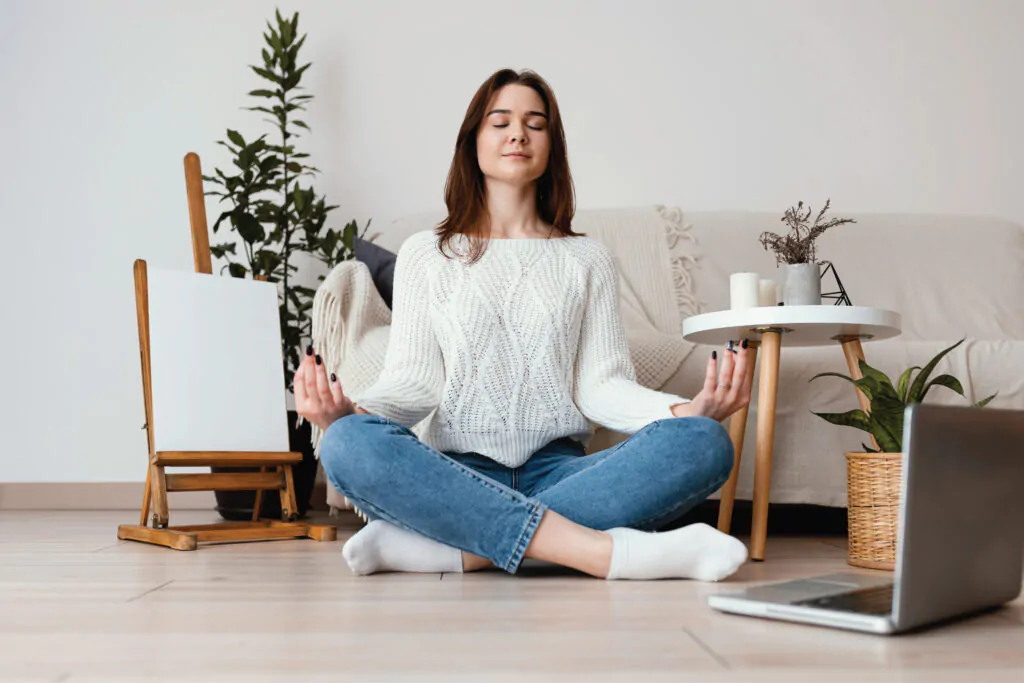
Mindfulness can be incorporated into your daily routine without significant time or effort. Here are a few simple ways to start:
- Mindful Breathing: Spend a few minutes each day focusing on your breath. Notice the sensation of the air entering and leaving your nostrils. This practice can anchor you in the present moment.
- Body Scan: Lie comfortably and mentally scan your body from head to toe, observing any sensations without judgment. This practice promotes relaxation and body awareness.
- Mindful Eating: Pay attention to your food’s taste, texture, and aroma. Eating mindfully can enhance your enjoyment of meals and improve digestion.
The Power of Meditation:
Meditation is a practice that involves focusing the mind on a particular object, thought, or activity to train attention and awareness. It is a cornerstone of mindfulness and has been practiced for centuries across various cultures.
Benefits of Meditation
- Better Sleep: Regular meditation helps calm the mind, improving sleep quality and duration. It reduces the racing thoughts that often keep you awake at night.
- Reduced Anxiety: Meditation promotes relaxation and reduces the symptoms of anxiety. It encourages a sense of inner peace and calm.
- Enhanced Self-Awareness: Through meditation, you become more aware of your thoughts and patterns, allowing you to gain deeper insights into your behavior and motivations.
How to Cultivate Mindfulness in Daily Life:

- Start with Small Steps: Incorporate short mindfulness exercises into your daily routine. This could be as simple as taking a few deep breaths before starting your day or practicing mindful eating by savoring each bite of your meal.
- Create Mindful Moments: Set aside specific times during the day to pause and check in with yourself. This could be during a morning walk, commuting, or before bed. Use these moments to focus on your breath and bring your attention back to the present.
- Mindful Listening: Practice active listening in your conversations. Give your full attention to the person speaking without interrupting or planning your response. This not only improves your focus but also enhances your relationships.
- Body Scan Meditation: This involves paying attention to different body parts, starting from your toes and moving up to your head. This practice can help you become more aware of physical sensations and release tension.
- Gratitude Practice: Take a few minutes each day to reflect on what you’re grateful for. This shifts your focus from what’s lacking to what’s abundant in your life, fostering a positive mindset.
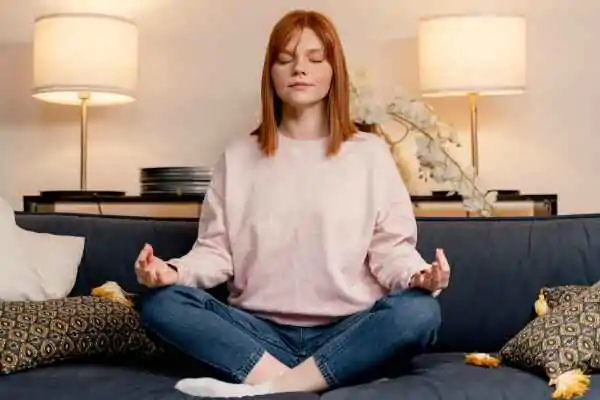
Incorporating Meditation into Your Routine:
- Choose a Time and Place: Find a quiet space where you won’t be disturbed. Please choose a time that works best for you, whether first thing in the morning, during a lunch break, or before bed.
- Start Small: If you’re new to meditation, start with just a few minutes daily and gradually increase the duration as you become more comfortable with the practice. You can start meditating for 5 minutes daily in the beginning. Check out my article on a 5-minute meditation guide for beginners.
- Focus on Your Breath: Sit comfortably, close your eyes, and focus on breathing. Notice the sensation of the breath as it enters and leaves your body. When your mind wanders, gently bring your focus back to your breath.
- Guided Meditations: Many apps and online resources offer guided meditations. These can be especially helpful for beginners as they provide structure and support.
- Consistency is Key: Like any new habit, consistency is essential. To build a routine, try practicing meditation at the same time each day.
Overcoming Common Challenges:
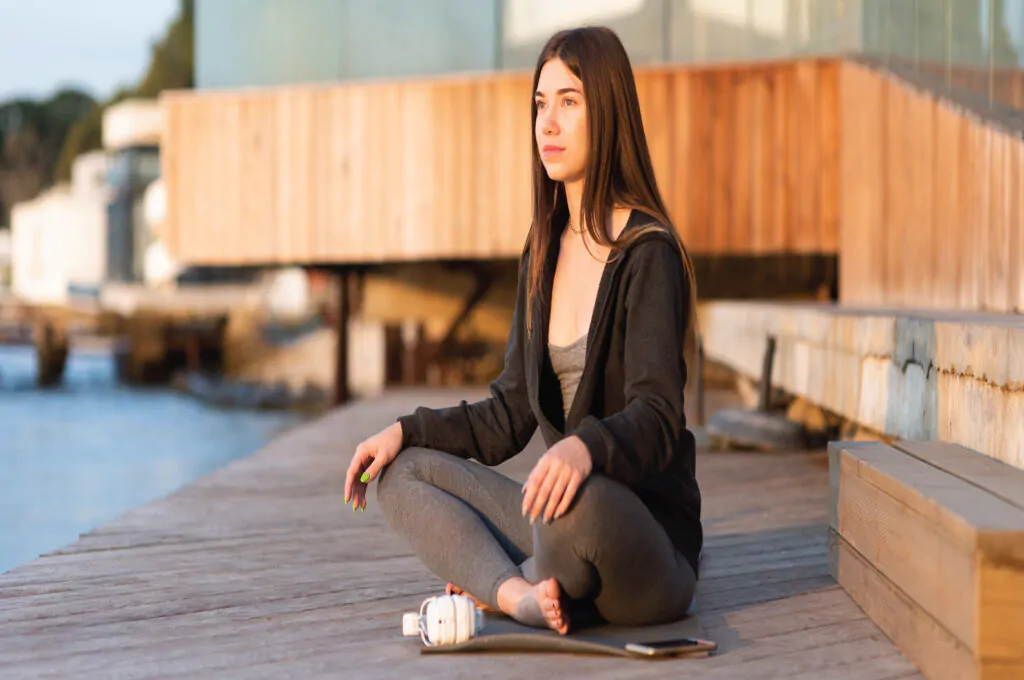
- Restless Mind: It’s normal for the mind to wander during meditation. When this happens, gently guide your attention back to your breath without judgment.
- Time Constraints: If finding time for meditation seems challenging, start with just a few minutes a day. Even short sessions can be beneficial.
- Distractions: Find a quiet space and consider using earplugs or white noise to minimize external distractions. Over time, you’ll become better at tuning out the noise.
- Impatience: Progress in meditation can be slow and subtle. Be patient with yourself and trust that the benefits will come with regular practice.
The Impact on Sleep, Anxiety, and Stress:
- Improved Sleep: Meditation can help quiet the mind, making falling and staying asleep easier. Practices such as guided sleep meditations or progressive relaxation can be beneficial.
- Reduced Anxiety: Mindfulness and meditation can reduce anxiety by helping you stay grounded in the present moment and break the cycle of worry and rumination.
- Stress Reduction: Regular meditation can lower stress levels by promoting relaxation and helping you develop a more resilient mindset.
Embracing a Focused Life:

Living a fused life means integrating mindfulness and meditation into all areas of your life. It’s about finding balance, staying grounded, and approaching each moment with a sense of presence and purpose. By cultivating these practices, you can navigate the distractions of modern life with greater ease and clarity, leading to a more focused, peaceful, and fulfilling existence.
Conclusion
Mindfulness and meditation are powerful tools for achieving a focused life in a distracted world. By incorporating these practices into your daily routine, you can experience profound mental, emotional, and physical benefits. Embrace the journey toward a fused life where harmony and balance are within reach, no matter how chaotic the world around you may seem.
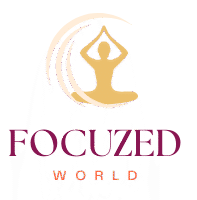
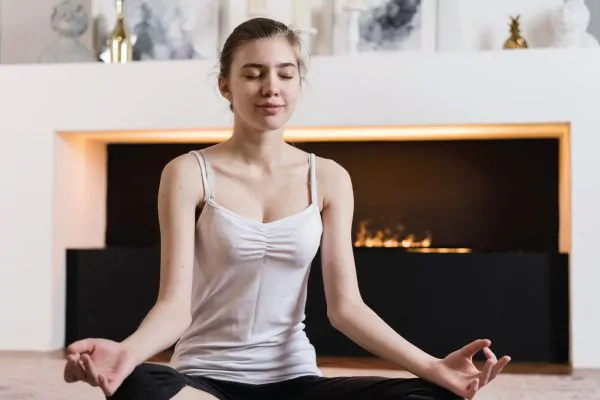



2 thoughts on “Mindfulness and Meditation: 1 Intelligent Way to Live a Focused Life in a Distracted World”
This content is very beneficial for those who are mentally and physically depressed. Overall helpfull.
I just wanted to say how much I love your meditation website! The guided meditations are so soothing and helpful – they’ve really been a game-changer for me on stressful days. And the resources section is like a treasure trove of mindfulness goodies!
Thank you so much for creating this amazing space for us to breathe, relax, and connect with ourselves.
You’re doing a wonderful thing here